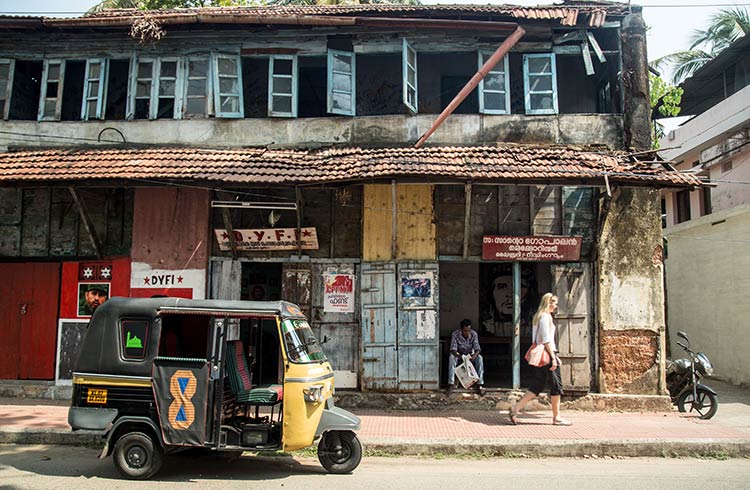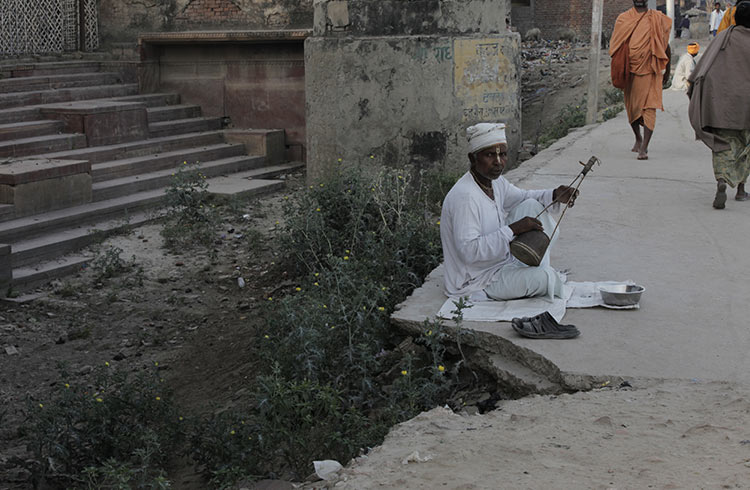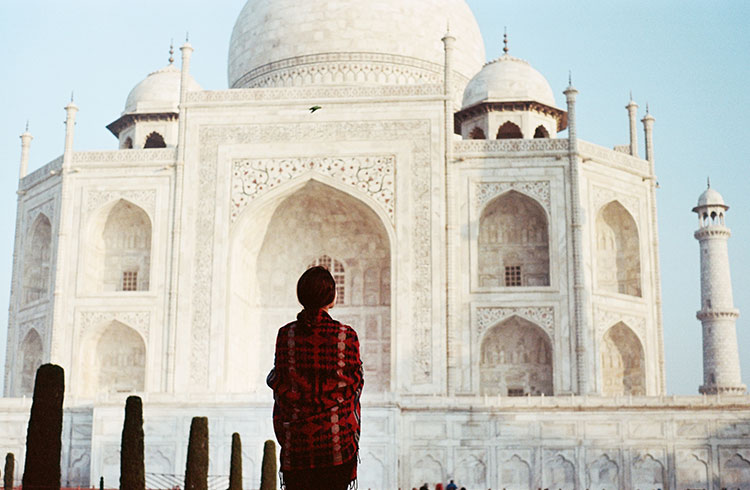How to Avoid Common Scams When Traveling in India
As sure as the Ganges flows into the Bay of Bengal, you will encounter one of these common scams in India. The trick is to know how to identify a scammer before you get done.
 Photo © World Nomads
Photo © World Nomads
- Taxi scams in India
- The poor student scam
- The fake train scam
- Frauds at tourist attractions
- How to avoid Scams
Taxi scams
A good place to start your preparation for India's scams is with taxis. Almost every traveler will catch one at some point, and it's likely this will be your first encounter with the locals upon leaving the airport.
It's almost guaranteed that if you take a taxi or rickshaw from the airport or train station to your hotel, you'll be told some silly reason why it can't be done. "No, sir. There are Hindu riots there." or "That hotel has burned down." or "That hotel is fully booked and closed for the evening."
The driver will do anything to take you to hotel/hostel/guesthouse where he can receive a nice kickback from the owner.
It's a good idea to do your research on the accommodation before you land, that way you can insist that they take you there; providing them with the correct address, and the phone number for them to call the accommodation themselves.
Otherwise, another option is for you to get out of the taxi, and find a driver that's willing to co-operate with your itinerary.
Taxi drivers will also try to charge you more on arrival at your destination. Be sure to agree on all fares and payments for services clearly in advance; some people go as far as writing them on paper and carry a notebook with them for that very purpose. Others choose to record what's been quoted to them, ready to play it back if there's a dispute.
Being told that you can "pay as you like" is a sure warning sign.
When you're out and about you'll find scam artists waiting for you.
The poor student scam
One example is the "poor student" that offers to take you sightseeing for hours in exchange for school books.
Unfortunately for you, when you come to buy their books you'll find they're tremendously overpriced, and sold from a bookstore the "student" is affiliated with.
While we're talking about money, always check your change because almost everyone will try and shortchange you.
The fake train captain scam
Beware of fake "train captains". While it's common to pay to upgrade your train ticket on board, beware of uniformed train captains coming to check your ticket and offering to accept money in exchange for an upgrade. Make sure you know the going rate, otherwise you could pay the wrong person.
A few key giveaways to identify the difference between a real train captain, and a fraud:
- Real train captain has a seating chart with a stack of papers in his hand to check which seats are empty and which are taken
- Real train captains will have a badge with his name and number
- Real train captains checks everyone's ticket, not just the tourists.
Frauds at tourist attractions
Be particularly wary of frauds at tourist attractions.
For example, at the temples of Kanchipuram scammers prey on those unfamiliar with local and religious customs. If a priest or guide offers to treat you to a religious ceremony, find out what it will cost you first. Do not allow yourself to be pressured into making "donations" of thousands of rupees - simply walk away if you feel uncomfortable.
Another popular scam in the gemstone regions of Jaipur and Agra could get you in even more financial strife.
Tourists have reported being approached by a "gem dealer" who convinces them to buy some gemstones from him, and transport them back home under their duty free allowance.
They're told that when they arrive back home, one of the dealer's partners will buy them back for much more money than they originally paid.
Of course the details that you'll be given about the "partner" are fictitious, and you'll be stuck with a heap of worthless gems when you get home.
Sometimes you won't be asked to buy the gems, but instead to provide a financial guarantee of your credit card number and signature. No prizes for guessing what happens after that.
Scams on the streets
Another popular scam in Delhi is for someone to throw garbage or faeces on your shoes while you're not looking, and then graciously offer to clean your shoes for a small fee.
Watch out for the "milk for baby scam". You may be approached by a young child who will be holding a baby.
They will tell you they aren't begging, but "Please could you buy some milk for my baby sister?"
They will then conveniently show you where to buy the milk – which, of course, will be available at a vastly inflated sum.
In any case, giving money to beggars of any kind in public is not safe, as it will result in a stampede of beggars from all directions.
How to avoid scammers in India
While this is not an exhaustive guide to India's scams it should help to open your eyes to just how many people are out to get your money in India through dishonest means.
The important thing to remember is to simply always on your guard and if something feels wrong, say so. And the golden rule? Don't be afraid to just walk away. As with everything else in life, if a deal seems to good to be true, there's a reason – it is.
Related articles
Simple and flexible travel insurance
You can buy at home or while traveling, and claim online from anywhere in the world. With 150+ adventure activities covered and 24/7 emergency assistance.
Get a quote

5 Comments
100% true facts.if u are a foreig person there are chances that u get in one of the troubles mentioned here.
HI there, how likely do you think these scams are to happen? What should I take to be careful on my trip?
I found it a great great relief that Uber and Ola are available in the big cities. (You need an Indian SIM Card for Ola, which is cumbersome to obtain, but anyway usefull) It spares you from all that hassles and arguments with Taxi and scooter drivers and made our transport much easier.And even cheaper, since the uninflated rates were much lower!
All the "guides" at the major sights took so little money, that eventually we accepted them.
At least in Rajasthan plus Agra we never had any problem at all.
its true not only beggars the whole country runs on only scam
Thanks for sharing Phil! Yes, do need to watch out for the frauds at tourist destinations. Similar scams are the touts at temples, mosques, train stations and Varanasi Ghats amongst others.
They really do have many tricks, such as telling you that a place is closed, a train is full, helping to take of your shoes, bringing you into a ghat and then blocking your way out unless you pay an inflated tip, etc. So stay careful and enjoy India!